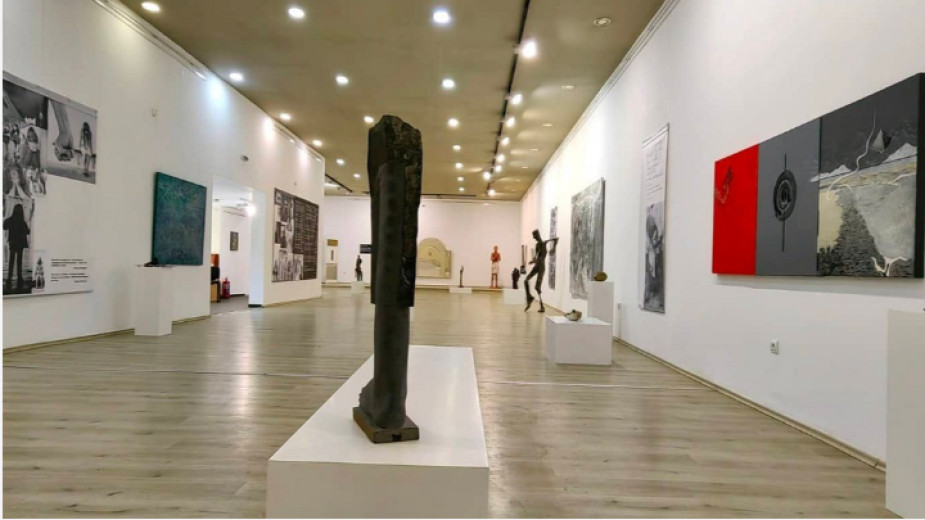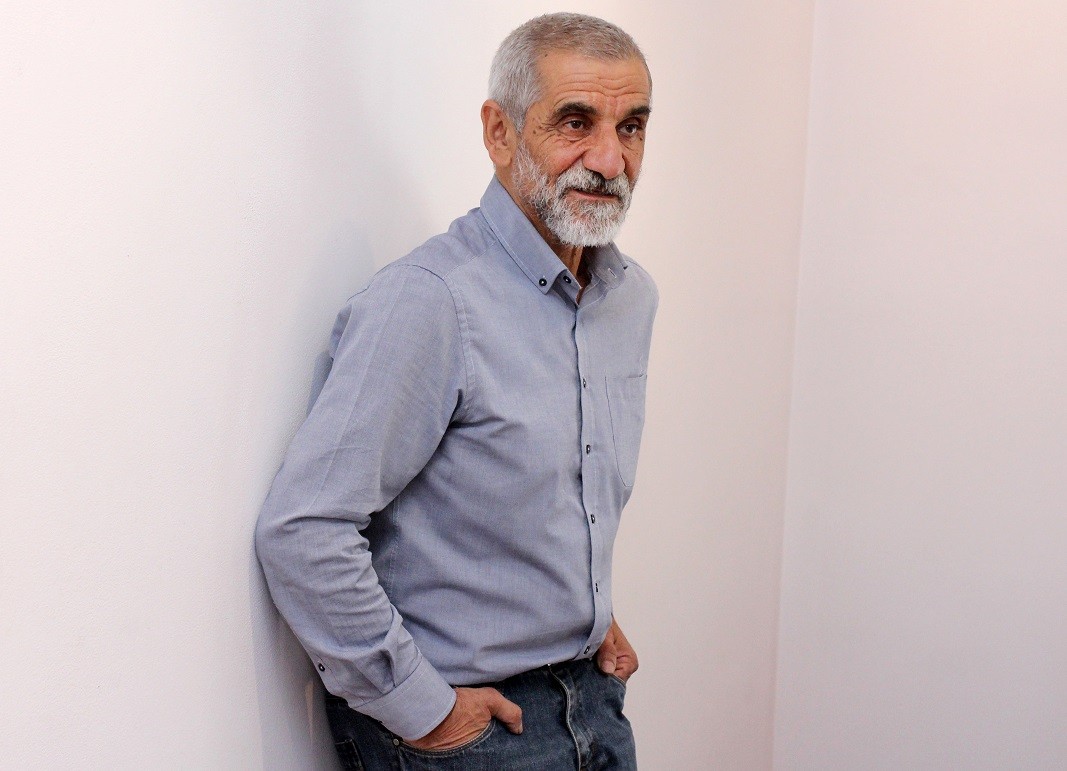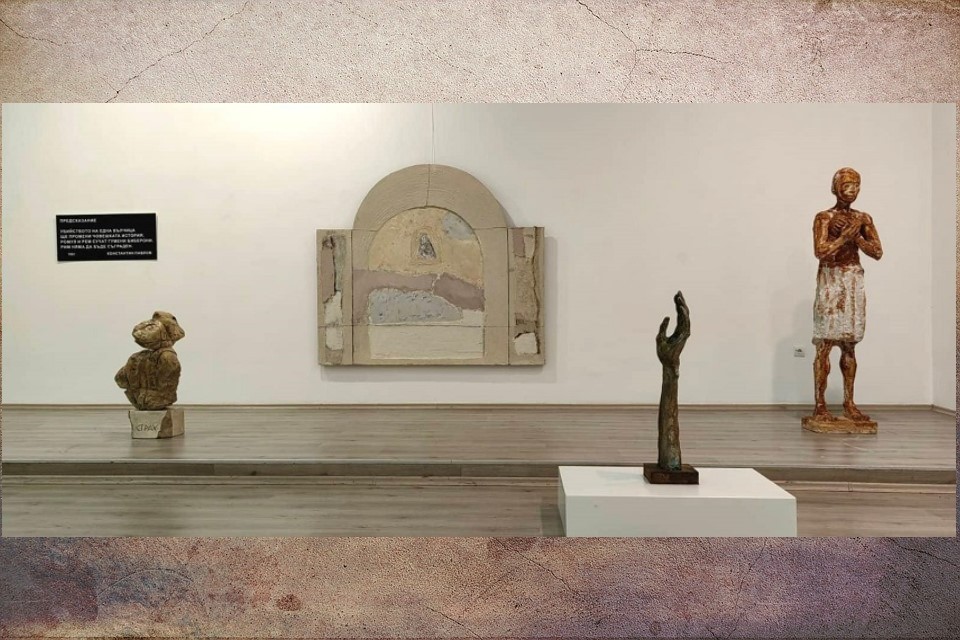 10
10
ˮNonviolence is the greatest force at the disposal of mankind.ˮ These words belong to Mahatma Gandhi, the great son of India, who reminded the world of the principle of āhimsa (non-violence) as the path to independence in all its forms. His ideas have influenced the minds of ordinary people and world leaders across the globe. In 2007, as a tribute to Mahatma Gandhi and his work, the UN declared 2 October (his birthday) as the International Day of Non-Violence.
The conceptual exhibition entitled ˮAhimsa: Nonviolenceˮ is dedicated to Gandhi and the celebration of the International day of non-violence. On October 4, in the Art Centre Gallery in the town of Pleven, the exhibition will open its doors to its first visitors.
It was organised with the support of the Embassy of the Republic of India and Ambassador Sanjay Rana, who is expected to attend the official opening. More than 30 artists of different generations are participating with their works.

"This is a topic that is so painfully relevant, so essential, that it could not but provoke a spontaneous reaction in all of us, the participants, to join our own position of non-violence," sculptor Prof. Emil Popov told Radio Bulgaria. - I can't help mentioning the person who is at the heart of all this - Yordanka Boyanova, founder and chair of the East-West Indological Foundation. About a month ago she approached me and Prof. Dr. Stanislav Pamukchiev with the idea for an exhibition, so we discussed it. Back in 2019, Ms. Boyanova initiated and organized an exhibition dedicated to the personality of Mahatma Gandhi on the occasion of the 150th anniversary of his birth.
Some of the artists who exhibited their work then have joined in the current show. I would like to mention sculptors Valentin Starchev, Pavel Koychev, Georgi Chapkanov, and painters Milko Bozhkov, Lyuben Genov, Ivaylo Mirchev, and Plamen Monevski.

The context of the exhibition is set by several vinyl posters - one with a sketch of portraits of leaders who are followers of Gandhi's idea of non-violence, another one with their quotes, and third vinyl dedicated to non-violence against children with the words of Nelson Mandela: "We owe our children – the most vulnerable citizens in any society – a life free from violence and fear."
ˮOf course, when we talk about non-violence, the first person that comes to mind is Mahatma Gandhi. It was through his principle of ahimsa that India achieved independence in 1947 - nothing like it had ever happened before in history. The contribution of Martin Luther King, who achieved an impressive political victory over violence, is also undisputed. These figures, as well as other world leaders, are represented by their iconic thoughts. It was a very spontaneous process between Danny Boyanova, Stanislav Pamukchiev and myself. We were unanimous that there should be a documentary section in the exhibition that reflects the forms of non-violence from the past to the present, realizing that this principle has a thousand-year history - since the sutras of the Buddha, which contain the very essence of ahimsa.

“Hatred does not cease by hatred, but only by love; this is the eternal rule,” said the Buddha. So, on the one hand, there are the works in what I would call the "Dedicated to" section, and on the other hand, the quotes from figures like Gandhi, Tagore, the Dalai Lama, Mother Teresa, and the Bulgarian spiritual teacher Peter Deunov. Another Bulgarian was included, a personality the older people remember very well - Diado (Grandpa) Dobri. For years he stood in front of St. Alexander Nevsky Cathedral and St. Sophia Basilica, collecting spare change from the people only to donate it all for the restoration and renovation of Orthodox churches.

We have tried to address the theme of non-violence in its various aspects and dimensions. There is a thought of Martin Luther King: ˮThe chain reaction of evil-hate begetting hate, wars producing more wars – must be broken, or we shall be plunged into the dark abyss of annihilation.ˮ It seems to me that this needs to be said out loud because humanity is literally in that phase."
English version: Elizabeth Radkova
Photos provided by the organizers, BGNES
An exhibition in memory of the great Bulgarian actor Georgi Partsalev, on the occasion of the 100th anniversary of his birth, opens today in the open-air gallery in the garden in front of the Ivan Vazov National Theatre. The exhibition "Don Quixote of..
They say that Divna Shalich Lafchieva was a woman with many homelands. Like the multifaceted nature of her soul, she was also a woman with many vocations. But the most important thing is that from the paths she has left her..
The director of the Sofia Philharmonic Orchestra, Nayden Todorov, will conduct an opera gala in Prague tonight featuring renowned Romanian soloists. Soprano Angela Gheorghiu and tenor Teodor Ilincăi will perform arias and duets by Handel, Puccini,..
An exhibition in memory of the great Bulgarian actor Georgi Partsalev, on the occasion of the 100th anniversary of his birth, opens today in the open-air..
They say that Divna Shalich Lafchieva was a woman with many homelands. Like the multifaceted nature of her soul, she was also..
The director of the Sofia Philharmonic Orchestra, Nayden Todorov, will conduct an opera gala in Prague tonight featuring renowned Romanian soloists...

+359 2 9336 661
